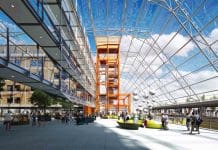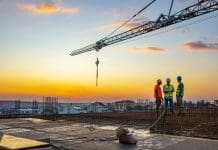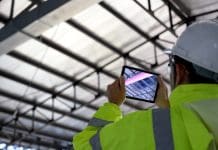Gaynor Tennant of Modularize examines the importance of early engagement in offsite developments
As an insider to the offsite construction industry, it’s easy for me to believe that what I think is mainstream is still alien to a lot people in the more general construction sector. Though the offsite construction sector is gaining momentum, there are still tons of questions that I field from developers and housing associations daily. Often these questions and discussions all come back to one simple and singular message, a message that I want to amplify with this article. A message that will benefit you, the customer; a message that I hope will be easy to digest and really help you on your offsite journey.
It came to my mind to write this article after the second of our Offsite Alliance roundtable discussions. A series of events that have included attendance by several offsite system manufacturers, main contractors and industry experts. The aim of the Offsite Alliance is to bring the industry together and speak out with a clear voice to government and developers so that this current offsite construction boom can gather even more momentum and become mainstream. The same message was echoed by the group of industry leaders around the table. The same, simple message that cuts through every issue you might encounter on your offsite journey:
Early engagement is VITAL.
There are so many offsite systems on the market, so much “advice”, so much literature and so many events to attend! The one thing that all of my most trusted and experienced industry peers agree upon is that early engagement is absolutely vital. What do I mean exactly by “early engagement”?
From RIBA stage 0, from conceptualisation, from the very first notion you have that you’re going to build something. All the benefits of building using offsite or Modern Methods of Construction are truly within reach if you start on the right foot. If you don’t already know, then I’ll remind you, the benefits that you can enjoy are:
- A reduction in construction time by two-thirds, compared to traditional methods.
- Higher performing buildings – they are made in factory-controlled conditions.
- A huge reduction in on-site snagging – offsite components are checked before they leave the factory.
- Project cost reduction – when comparing the lifecycle costs, taking into account financing cashflows and earlier handover to customers, offsite is cheaper than traditional construction.
- Less disruption on site – an offsite house can be delivered and installed in less than 24 hours! Compared with traditional construction that means less noise, less traffic and less disturbance to neighbours.
So, it’s faster, cheaper and provides better quality and is better for the environment!
You can only enjoy these benefits if you ENGAGE EARLY. As simple as that. Don’t bring your building, designed for traditional construction, with planning consent to any manufacturer or consultant and ask them to beat your traditional construction price. It won’t. It’s a waste of everybody’s time. You’ll be trying to make a square peg fit into a round hole. Be very cautious of anyone who tells you they can do it using their system.
So, I hope that I’ve made that point clear now. You should be thinking “who should I engage early?”. Well, M-AR has put it very well in one of their new residential brochures when they say:
“If you have a project in mind, now or in the future, you should choose several companies to visit and speak with. Think of it as an interview process so you can get a real sense of how they operate. Pay attention to how they make you feel in the process (Do you get a warm fuzzy feeling?) this can be a great indicator to the journey ahead. Ask yourself:
- Can I work with them long-term or would it just be a means to an end?
- Do they have me in mind or are they just focusing on transactions?
- Do our values align?
- Are they really solving my problem?
- Do I feel in ‘Safe Hands’?”
Developers begin to understand offsite construction
Developers are starting to understand how to approach the offsite sector and start to realise the benefits I’ve listed above. One such developer is Innerspace homes, who are leading the way with a modular building system that is based upon a chassis design, reflecting the automotive sector in thinking but generating some of the most beautiful, functional and energy efficient homes in the offsite sector.
Tony Dicarlo, founder of Innerspace homes, offers his developer view: “The problem with traditional build is that every project is in itself a bespoke project requiring fresh design input every time and increasing the amount of work, coordination and points of cost uncertainty for each project.
“MMC and in particular modular construction requires the design process to be fully completed at the start of the project. Everything from structural design and M&E to paint finish are required to be fixed before going to the production line. This means from project inception a higher collaboration is required from all stakeholders to standardise and fix upfront a higher proportion of the build- thus making the processes and parts of building more similar every time and less bespoke. This standardisation helps reduce design costs going forward, reduces value engineering so buildings can more greatly honour the original design intent and increases better control of programme and costs.
“Through MMC and the standardisation process stakeholders can gain much better control of both the work stages and the end product. However, these gains will only be captured when the mindset changes. MMC requires a more open, collaborative and fully engaging upfront design approach, so early engagement with professionals that understand and can design for MMC and its processes is key to the success of a project.”
Defence manufacturing sector
Paul Mason of ilke Homes enlightens us further with some wise words that nod towards the more established defence manufacturing sector and encourages to not just think about engagement but points out how important early commitment is too.
“While the modular industry talks about early engagement, clients should not confuse that with early commitment. The industry effuses early engagement to aid an education process, where the perspective clients can understand the benefits and limitations of different manufacturers products and USPs. It also enables the client the opportunity to gain the best possible value from the project before deciding on their preferred route forward.
“The defence industry uses a term ‘without prejudice or commitment’ to enable the client, (usually MoD or the US DoD) to inform suppliers of their needs, so manufacturers can support the client in the ‘art of the possible’ with their products and developments. A similar approach benefits both parties, clients in giving them more knowledge, earlier and enabling them to make better decisions and manufacturers in having better pipeline visibility and view of their product in the marketplace.”
Industry bodies offer advice
There are several industry bodies such as the MPBA, Build Offsite and the newly formed Offsite Alliance which can also offer advice, drawing on the experience and incredible credentials of their members to point you in the right direction. Offsite isn’t new. We’ve been building this way for years and there are many seasoned experts in the industry who could advise you.
Jackie Maginnis, chief executive of the Modular & Portable Building Association, said: “Modular/volumetric buildings or MMC as is the buzzword of the day – is not new the industry has been providing hospitals, schools, student accommodation and commercial buildings for many years.
“Understanding the process of manufacture in modular, we do not need to reinvent the wheel it is already there. Clients need to talk to the manufacturers first direct we can assure you that does work.”
Standardise the offsite sector
There are movements to standardise components across the offsite sector. This is something that is really gaining momentum and will lead to real economies of scale that will lead to lower component costs and lower building costs. Without knowing this and how far the industry is progressing with this technology then how can you expect to benefit from offsite construction without engaging the right people and organisations early on in the process?
Mark Southgate of the Ministry of Building Innovation & Education, said: “Modern Methods of Construction require the design and manufacture approach of homes to be fixed at the very start of the process. Late changes are not possible in a manufacturing environment. This will require a change of mindset by all in the development process.
“Clients, contractors and decision-makers, such as planning authorities, will either need to agree to a basic design upfront, or allow for some customer choice within an agreed template or design envelope. This will require better understanding of the design process by all parties involved.”
I hope that I’ve made a compelling and straightforward case for helping you understand how to benefit from offsite construction. My aim is to make things simple for you. Please remember that offsite isn’t just about boxes. There are many forms of offsite that can be applied to projects and if it’s thought through properly at the start and you get the right advice and team around you then you will be rewarded by all of the benefits of offsite and Modern Methods of Construction. It’s not as complicated as you might think and I’m more than happy to take your call and talk through any questions you might have.
Whatever size your project, whether it be 5 houses or 500 houses, ensure you maximise all the benefits of offsite through early engagement. If you want a high quality, energy efficient & low carbon build that is cost-effective and doesn’t sacrifice design then don’t wait until you already have a developed design with planning permission to go modular. If you don’t engage early you will be subject to design and planning restrictions – Zoe Kennedy, Modularize
Gaynor Tennant
CBDO
Modularize
Tel: 0330 113 1975
Twitter: @Modularize
LinkedIn: Modularize ltd
Please note: this is a commercial profile.

















